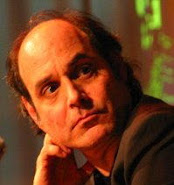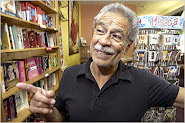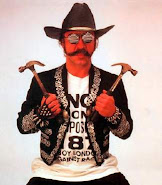
Lesson plan created by Jessica B. Muniz, MSW, Doctoral Student
Program in Culture, Literacy, and Language
Division of Bicultural Bilingual Studies
University of Texas, San Antonio
Program in Culture, Literacy, and Language
Division of Bicultural Bilingual Studies
University of Texas, San Antonio
Background Information
Ruth Behar was born in Havana, Cuba, the eldest child of two very young parents. Her mother’s family was from Poland and Russia and they spoke Yiddish, while her father’s family was from Turkey and spoke Judeo-Espanyol. The marriage of her parents, a polaca and a turco, was a merging of two different Jewish civilizations that were constantly clashing. Ruth left Cuba just before turning five years old.
Ruth grew up in a series of humble brick apartments in Queens, a long subway ride from the bright lights and high culture of the city of New York. She studied for three years at Wesleyan University (B.A. Letters 1977) and then went directly to graduate school at Princeton University (M.A. Anthropology 1980; Ph.D. Anthropology 1983). Growing up an immigrant child speaking Spanish at home, Ruth was drawn to the Spanish-speaking world. As an anthropologist she has been fortunate to be able to spend periods of her life in Spain, Mexico, Cuba, and, most recently, Argentina. Ruth writes about these travels in her books: The Presence of the Past in a Spanish Village: Santa María del Monte (Princeton, 1986; expanded paperback, 1991), Translated Woman: Crossing the Border with Esperanza's Story (Beacon Press, 1993, Tenth Anniversary Edition, 2003), and The Vulnerable Observer: Anthropology That Breaks Your Heart (Beacon Press, 1996).
Translated Woman was named a Notable Book of the Year in 1993 by the New York Times. The book was adapted for the stage by PREGONES Theater, a Latino theater company based in the Bronx, New York. The stage adaptation, with live music and songs based on the book, has been performed in New Hampshire, the University of Michigan, the University of Minnesota, and at the Painted Bride Theater in Philadelphia. Translated Woman will be published in Spanish as Platícame algo aunque sea una mentira: Las historias de mi comadre Esperanza with Fondo de Cultura Económica in 2007.
As a cultural anthropologist, Ruth has the opportunity to study her own identity and as such she has been exploring the different facets of what it means to be a Cuban Jew. Her new book, An Island Called Home: Returning to Jewish Cuba (Rutgers University Press, 2007), is an account of her journey back to Cuba in search of the new Jewish community that has taken root on the island since the revolution.
Ruth is now at work on Double Diaspora: How My Cuban Jewish Tribe Found Home Again, in which she takes up the story of the Cuban Jews who have resettled in Miami since the 1960s (forthcoming with University of Florida Press).
Ruth is the co-editor, with Deborah Gordon, of Women Writing Culture (University of California Press, 1995), which has become a classic text about women anthropologists and their contributions to the art of ethnography.
As the editor of Bridges to Cuba/Puentes a Cuba (University of Michigan Press, 1995), she has created a forum for the voices of Cubans on and off the island seeking reconciliation and a common culture and memory. She is currently co-editing, with Lucía Suárez, a new anthology, The Portable Island: Cubans at Home in the World, which brings together reflections by Cubans on their condition as a global diasporic people.
Ruth also write essays, poetry, and fiction. Her essays can be found in The Female Body: Figures, Styles, Speculations (University of Michigan Press, 1991), Her Face in the Mirror: Jewish Women on Mothers and Daughters (Beacon Press, 1994), King David's Harp: Autobiographical Essays by Jewish Latin American Writers (University of New Mexico Press, 1999), and How I Learned English (National Geographic Books, 2007).
Ruth Behar’s story “La Cortada” was selected by Joyce Carol Oates for inclusion in the anthology Telling Stories: An Anthology for Writers (Norton, 1997). More of her stories appear in The House of Memory: Stories by Jewish Women Writers of Latin America (The Feminist Press, 1999), Telling to Live: Latina Feminist Testimonios (Duke University Press, 2001), and The Schocken Book of Modern Sephardic Literature (Schocken Books, 2005).
Ruth Behar’s poems are published in Witness, Michigan Quarterly Review, Tikkun, Latino Stuff Review, Brújula, Prairie Schooner, The American Voice, and Bridges. They also can be found in Sephardic American Voices: Two Hundred Years of a Literary Legacy (Brandeis University Press, 1996), Little Havana Blues: A Cuban-American Literature Anthology (Arte Público Press, 1996), The Prairie Schooner Anthology of Jewish-American Writers (Lincoln: University of Nebraska Press, 1998), Wáchale: Poetry and Prose about Growing Up Latino in America (Cricket Books, 2001), and Burnt Sugar/Caña Quemada: Contemporary Cuban Poetry in English and Spanish (Free Press, 2006).
She has a longstanding relationship with Ediciones Vigía in Matanzas, Cuba, an editorial collective that produces handmade artisanal books in small editions. A book of Ruth’s prose poems, Everything I Kept/Todo lo que guardé, inspired by the Cuban poet Dulce María Loynaz, was published in a bilingual English/Spanish edition by Ediciones Vigía in 2001.
Ruth Behar also wrote, directed, and produced Adio Kerida/Goodbye Dear Love: A Cuban Sephardic Journey, an 82-minute video documentary distributed by Women Make Movies (http://www.wmm.com/). The film focuses on the life stories of Sephardic Cuban Jews living in Cuba, Miami, and New York. It has been shown in film festivals and community centers all over the world.
Ruth Behar has received several prestigious awards, including the MacArthur Foundation “genius” fellowship in 1988, a John Simon Guggenheim award in 1995, and a Fulbright award in 2007. She received the Distinguished Alumna Award in Recognition of Outstanding Achievement and Service from Wesleyan University in 1997.
Latina Magazine named her, in 1999, one of the 50 Latinas who made history in the twentieth century.
Ruth Behar is a Professor of Anthropology at the University of Michigan, where she is also affiliated with programs in Women’s Studies, Latina/o Studies, Latin American and Caribbean Studies, and Jewish Studies. At Michigan she has received two Excellence in Education Awards, the D'Arms Faculty Award for Distinguished Graduate Mentoring in the Humanities, and an Institute for the Humanities Faculty Fellowship. She has worked with many vibrant students over the years that, like her, have tried to find ways to do their work as cultural anthropologists without silencing their artistic souls.
http://www.ruthbehar.com/
Lesson Plan Title
Ruth Behar: Poet, Writer, Filmaker, Anthropologist
Learning LevelGrade level 9-12TEKS Standards:
§113.31. Implementation of Texas Essential Knowledge and Skills for Social Studies, High School(24) Social studies skills The student applies critical-thinking skills to organize and use information acquired from a variety of sources including electronic technology. The student is expected to:(A) Locate and use primary and secondary sources such as computer software, databases, media and news services, biographies, interviews, and artifacts to acquire information
§110.42. English I(4)Writing/inquiry/research. The student uses writing as a tool for learning.C) Compile information from primary and secondary sources in systematic ways using available technology
Pre-Instruction or Prerequisite Knowledge/SkillsBasic
Internet search capabilities and basic writing skills
Lesson Duration
1-2 sessions, 1-2 hours each
Student may choose to do research outside of the classroom as well
Learning Location
Computer Lab, online, in the classroom, at home or in community library
Materials
Computers with Internet connection and printer/paper
Learning Objectives
Task 1: Student will be able to conduct research in order to write a bibliography about poet, writer, filmmaker, anthropologist and MacArthur Fellow, Ruth Behar· Students will be able to type their bibliography and print a copy to post on the classroom bulletin board and display in final display in the library.
Task 2:Using the information written in your biography research to create a book which will highlight a variety of events, accomplishments or contributions
Task 3:Contsruct a timeline focusing on Ruth Behar's works and/or life events
Task 4:Write your own biography (autobiography) to include culture and it's impact on your identity. Students can present this to the class.
(This may be displayed in the form of a book or timeline, or poster sessions).
Evaluation
The teacher may use the rubrics to assess students or other forms as she/he deems appropriate.






No comments:
Post a Comment